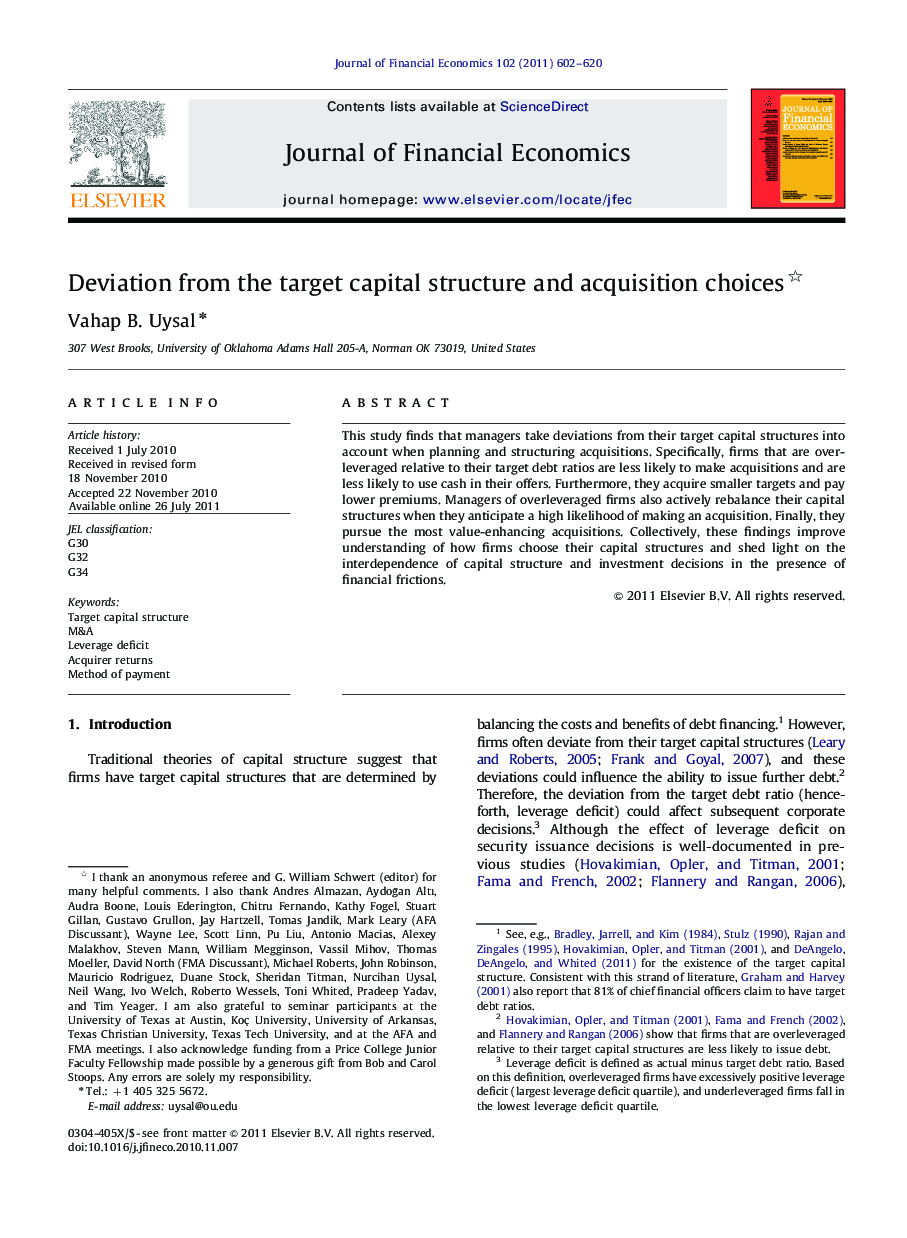| Article ID | Journal | Published Year | Pages | File Type |
|---|---|---|---|---|
| 960364 | Journal of Financial Economics | 2011 | 19 Pages |
This study finds that managers take deviations from their target capital structures into account when planning and structuring acquisitions. Specifically, firms that are overleveraged relative to their target debt ratios are less likely to make acquisitions and are less likely to use cash in their offers. Furthermore, they acquire smaller targets and pay lower premiums. Managers of overleveraged firms also actively rebalance their capital structures when they anticipate a high likelihood of making an acquisition. Finally, they pursue the most value-enhancing acquisitions. Collectively, these findings improve understanding of how firms choose their capital structures and shed light on the interdependence of capital structure and investment decisions in the presence of financial frictions.
► Managers take leverage deficit into account when structuring acquisitions. ► The nature of investment opportunities may influence the capital structure decisions. ► The inability to raise capital impedes a firm from bidding aggressively.
